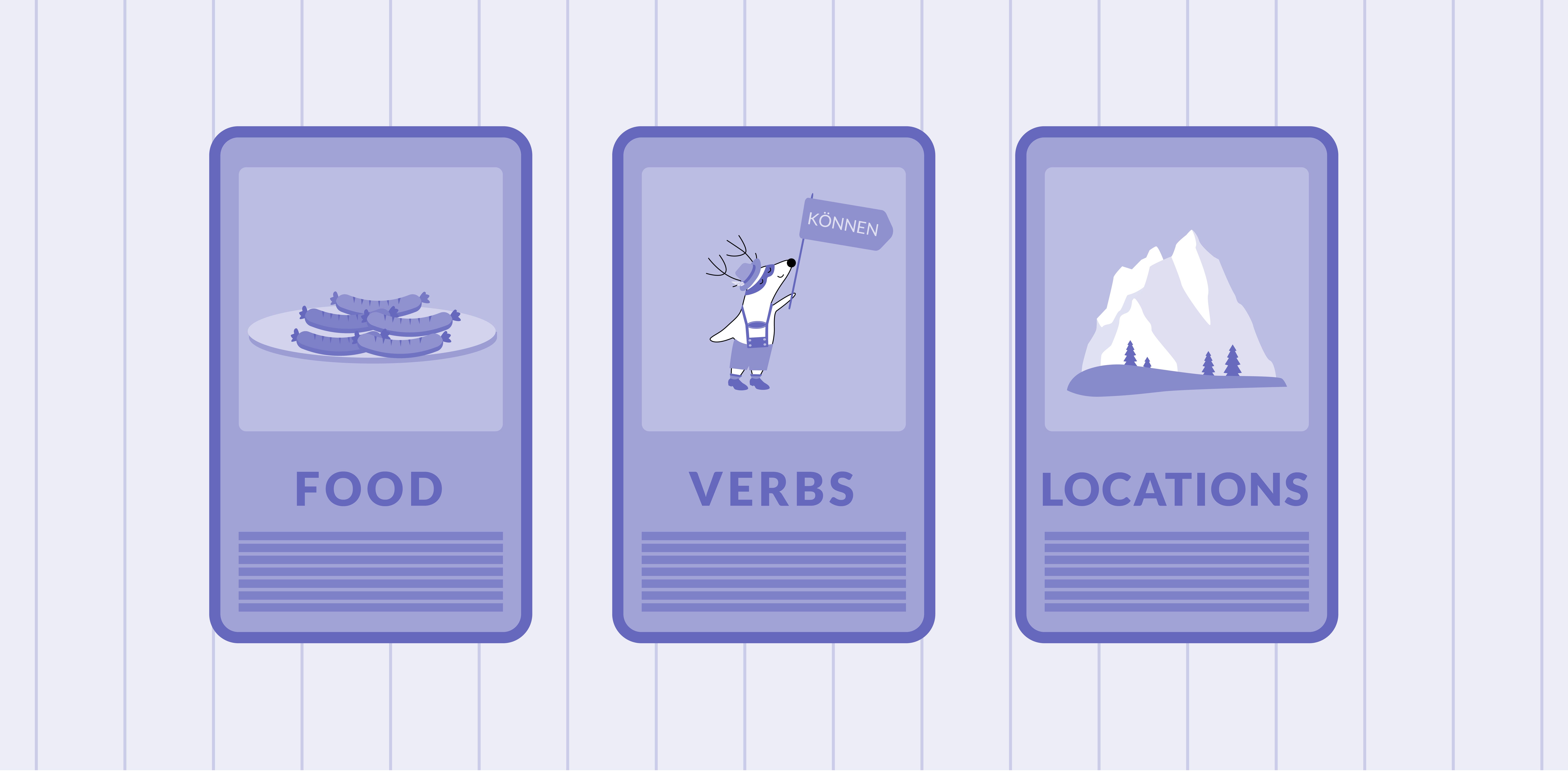
German is the most widely spoken language in Central and Eastern Europe and one of the most commonly used languages in the world. It may seem though that learning it is an unnecessary task – after all, you can always find a translator or simply use foreign language apps when traveling.
However, there are many benefits to knowing this language apart from just being able to communicate with locals in German-speaking countries and travel the world. Learning it is a wise choice for many reasons: business, tourism, education, culture and literature, and, of course, science.
These concepts may seem a bit abstract without context. So let us tell you more about these reasons in detail and help you make a decision.
Still saying to yourself, “why learn German?” Then let's take a look at why it is an excellent second language.
Learn German with Langster
1. German is the Language of Business
Why learn German? Because it is one of the most important languages for business. In fact, it's the most spoken language in Europe – more people speak German as a native language than any other language in the European Union. Germany is also the world’s second-largest exporter, and the German economy ranks number one in Europe and number four worldwide.
All that offers a lot of business prospects. If you speak German, you can work in a German company, open your own firm in Germany or German-speaking countries, move your business to the global market, and hire people who speak German as a native language – these are just a few things the new language can do for your business opportunities.
Doing business with German companies is a dream for many entrepreneurs. Fortunately, the German economy is doing well and many companies are working with international partners. Nevertheless, if you dream about working with German business partners, knowing German is often a must.
Moreover, many international companies have their headquarters in Germany, offering amazing career perspectives for people all over the world. And if you want to work for any of them, learning the German language will definitely be a benefit, if not a requirement.

2. Learning German Can Help You Get a World-Class Higher Education
Many German universities have an excellent international reputation, which is why, if you're looking to get a higher education, learning German is a great idea.
Germany has some of the best universities in the world, and the government offers free education for international students. Studying in one can give you an edge in the global job market as well as in the academic community.
In many of them, there are classes taught in English, but you will still require German to feel free on the campus or get a better understanding of certain topics.

In addition, learning German will allow you to read some of the most important works of literature, philosophy, art history, and science. Reading them in the original language can be a great way to boost your studies.
3. German is a Language of Culture and Literature
German is the language of culture and literature. Some of the most famous authors, musicians, and most revered filmmakers come from Germany and Austria. Some of the most famous German writers include Goethe, Kafka, Brecht, and Mann – just among many others, just as known.
Musicians like Beethoven, Bach, and Wagner all composed their music in German. And some of the most famous paintings in history were created by German artists like Albrecht Dürer and Caspar David Friedrich. Many German and Austrian filmmakers had a huge impact on the history of Hollywood – for example, Fritz Lang and Billy Wilder.
Learning German will give you access to this rich cultural heritage. You'll be able to read the books of these great authors, listen to the music of these legendary composers, and enjoy other German works in the original language.
4. It is the Language of Science
German is also the language of science and technology. Many important scientific discoveries were made by German scientists, including the theories of relativity and quantum mechanics. And some of the world's most famous inventors, like Johannes Gutenberg and Karl Benz, were German.

Today, Germany is a leader in many fields of science and technology, from renewable energy to automotive engineering. Moreover, it’s the second most commonly used scientific language! So if you want to work in a STEM-related field, or just stay up-to-date on the latest technological developments, learning German can give you a big advantage.
5. German Opens You Many Places for Travel
One of the best reasons to learn German is that it can help you travel more, and not just to Germany. German is one of the most commonly-spoken languages on the European continent.
The German-speaking world has a lot to offer, from relaxing resorts in Switzerland where German is an official language, to the breathtaking Argentina, home to more than 2 million German speakers, to even sandy Namibia, where many people know German as a second language.

All that means that if you know German, you'll be able to communicate with a large number of people in many different countries. And for that, you don’t even have to speak German fluently – for traveling, even some basic knowledge can be enough.
Remember that Germany itself is home to some of the most beautiful cities in the world. Berlin, Munich, and Hamburg are all major tourist destinations, and there's much more to see in other parts of the country. With German skills under your belt, you'll be able to explore all of these places, and more.
Bonus: It's Relatively Easy to Learn
German may seem like a difficult language to learn at first, but it's actually relatively easy to pick up. This is because German grammar is very logical and structured, and there are many methods and materials available to help you learn it.
Learning with tutors, signing up for language classes, downloading the language learning app (for example, Langster), or even watching movies in German – you can choose whichever way of learning this language works for you, and enjoy the process of acquiring new skills.
In addition, German words have many equivalent English words, so if you’re a native English speaker you'll already have a head start. There’s even no new alphabet to learn – you just need to add a few letters and work a bit on the pronunciation. And once you've learned the basics, you'll be able to start using German in your everyday life.
Speak German and Widen Your Point of View
If you’re looking for a foreign language to learn, make sure to think about German – knowing it can be extremely beneficial for a number of reasons. Whether you want to improve your job prospects, travel more, or learn about other cultures, this is one of the best ways to do so.
However, these are just five of the most common reasons to learn German. We haven’t even mentioned the impact German has on the economy, its online presence, or the way how speaking this language can improve your communication with people all over the world. And you can access all that thanks to just a few hours of practice per week.
So what are you waiting for? Get started today!









